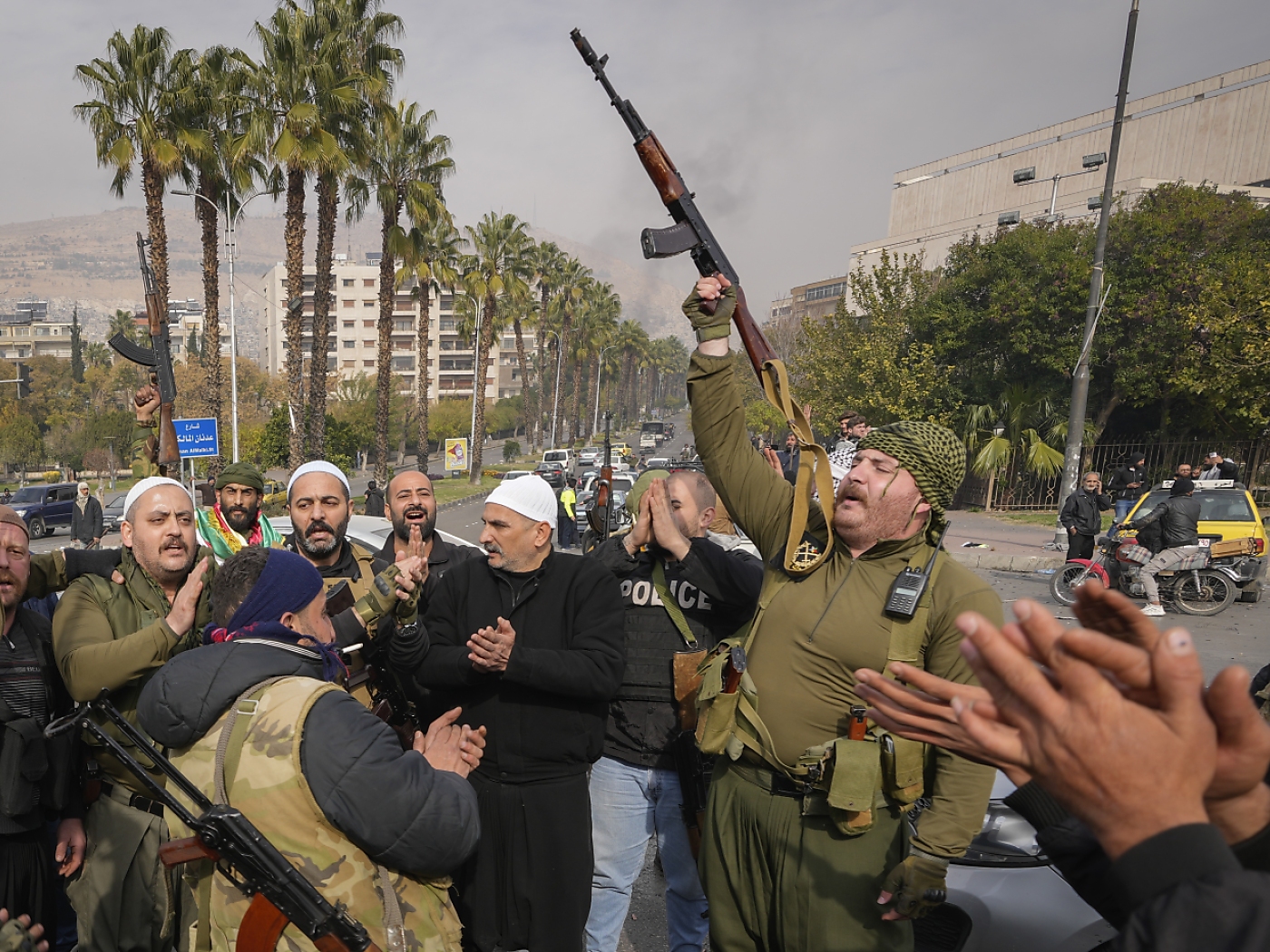
Fall of Assad: Switzerland calls for reconciliation in Syria

Following the fall of Bashar al-Assad's regime in Syria, the Swiss foreign ministry has called on all parties to protect civilians and respect international humanitarian law. Switzerland says it is calling for peace and reconciliation in Syria.
+Get the most important news from Switzerland in your inbox
The foreign ministry tweeted X on Sunday afternoon that it was closely monitoring the situation following the latest developments in Syria.
Around 60 Swiss Abroad are registered in Syria, with a further person registered on “Travel Admin” as a transient, the foreign ministry told the Swiss News Agency Keystone-ATS.
+ Switzerland condemns use of chemical weapons in Syria
No request for consular assistance has yet been made. The foreign ministry Helpline for Syria has not received any calls.
The foreign ministry does not organise departures. The principles of individual responsibility apply in accordance with the Swiss Abroad Act.
The foreign ministry is represented by an SDC humanitarian office in Syria, which remains operational. All foreign ministry staff in Syria are doing well.
Since April 2011, the foreign ministry has issued a general warning against travel to Syria.
+ Switzerland to step up humanitarian aid to Lebanon and Syria
End of reign
Bashar al-Assad’s reign in Syria came to an end on Sunday, according to the country’s army and its former protecting power, Russia. On November 27, Syria’s civil war, which had been going on since 2011, had suddenly reignited with the offensive of the Islamist alliance Haiat Tahrir al-Cham (HTS).
In a short space of time, the insurgents took control of numerous localities. It was only on Saturday that the rebels seized the strategic city of Homs. On Sunday, rebel groups took control of the capital Damascus.
Translated from French by DeepL/ts
This news story has been written and carefully fact-checked by an external editorial team. At SWI swissinfo.ch we select the most relevant news for an international audience and use automatic translation tools such as DeepL to translate it into English. Providing you with automatically translated news gives us the time to write more in-depth articles.
If you want to know more about how we work, have a look here, if you want to learn more about how we use technology, click here, and if you have feedback on this news story please write to english@swissinfo.ch.

In compliance with the JTI standards
More: SWI swissinfo.ch certified by the Journalism Trust Initiative






























You can find an overview of ongoing debates with our journalists here . Please join us!
If you want to start a conversation about a topic raised in this article or want to report factual errors, email us at english@swissinfo.ch.